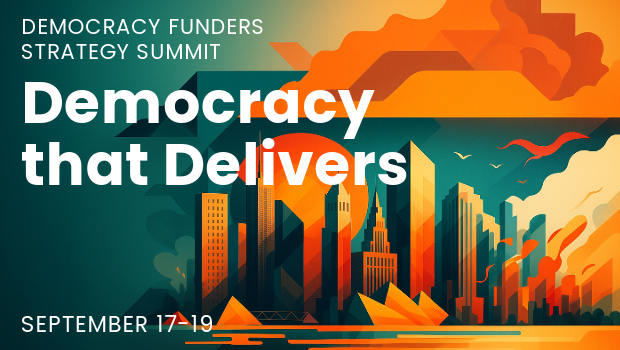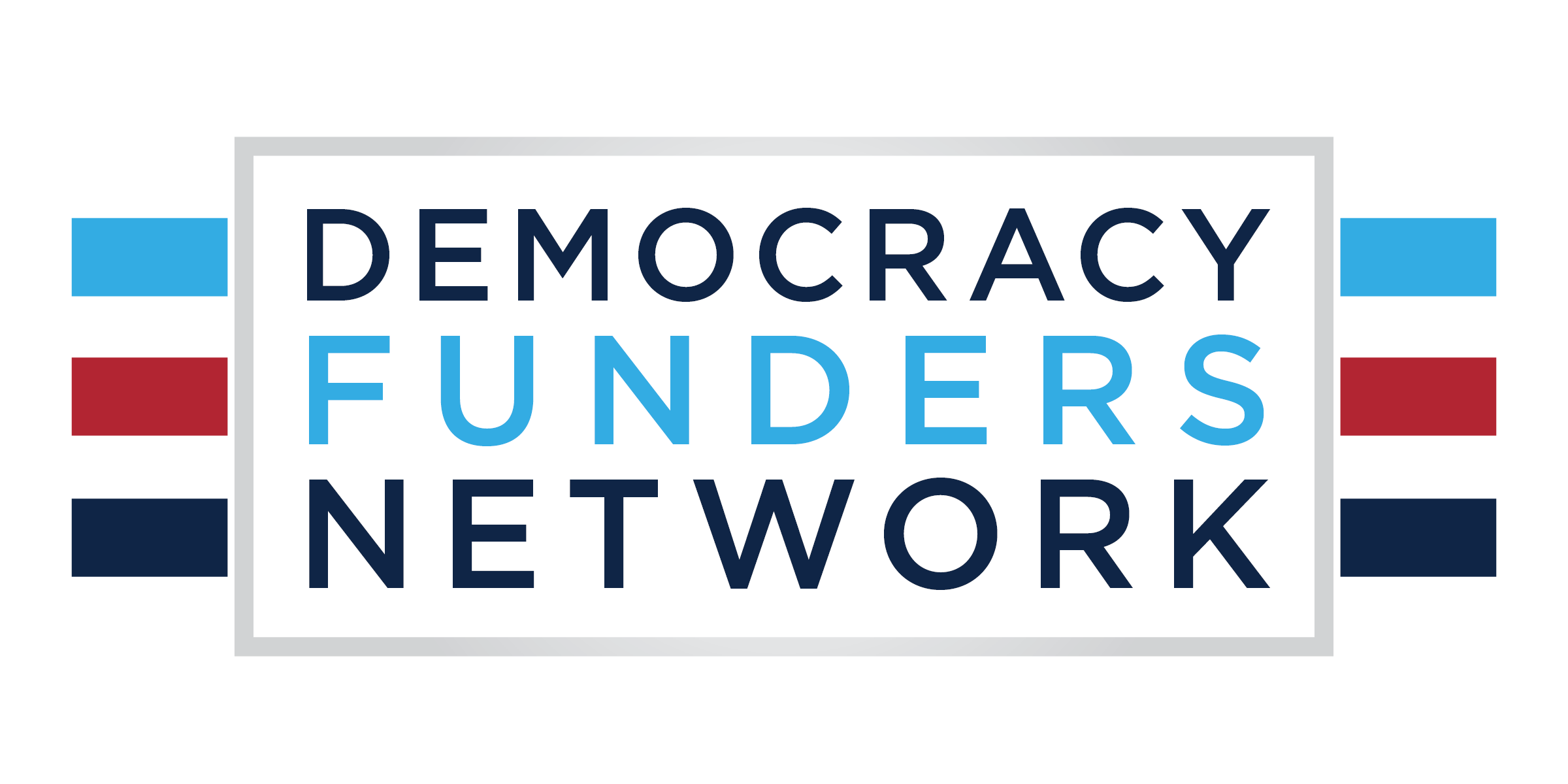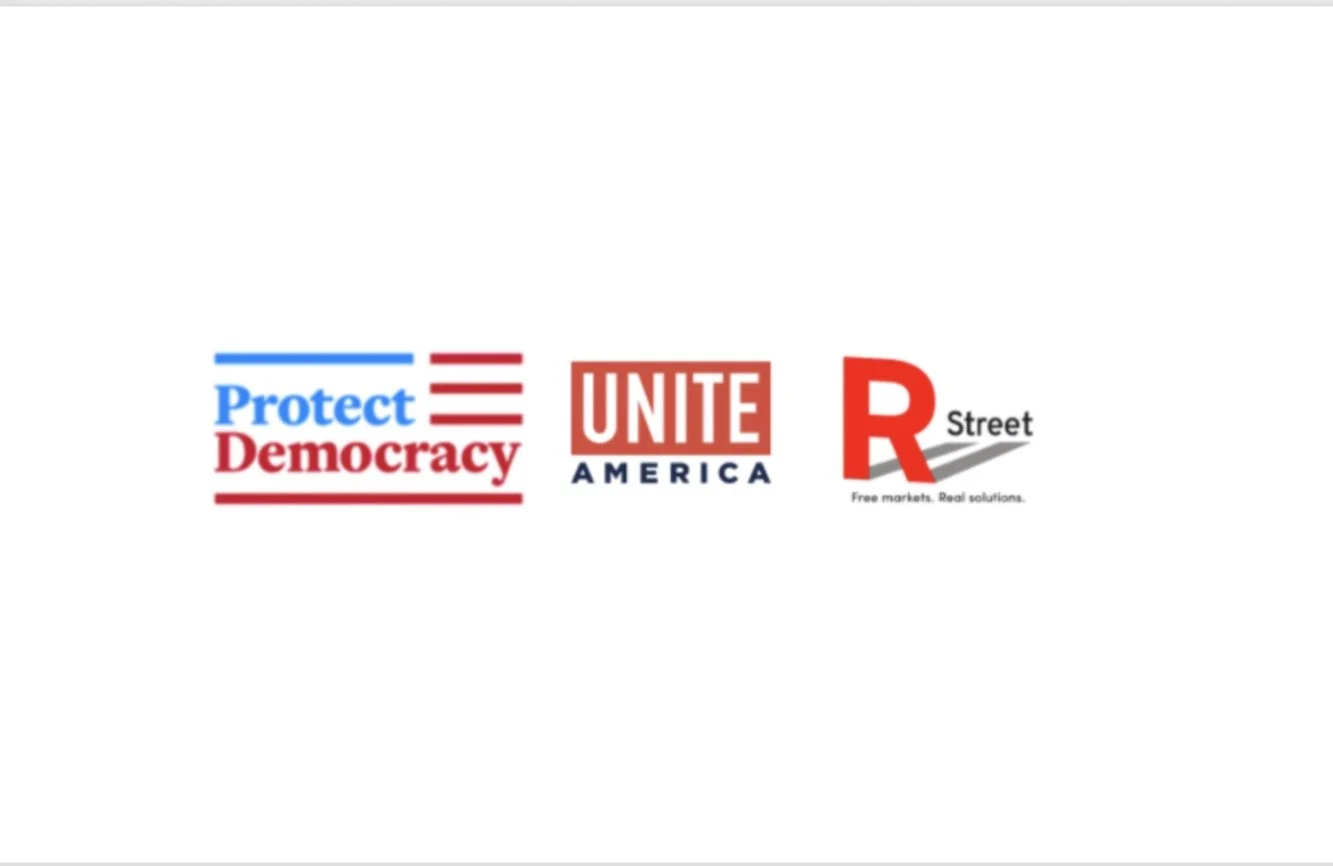We hope you can join us for this special discussion on Friday, Sept. 15—Democracy Day—that will highlight efforts in philanthropy to support election reporting.
In partnership with Media Impact Funders, Philanthropy for Active Civic Engagement (PACE), Democracy Funders Network (DFN) and Funders’ Committee for Civic Participation (FCCP), Democracy Fund will hold a one-hour virtual briefing on the intersection of democracy, elections, and journalism.
Earlier this year, Democracy Fund hosted listening sessions with a wide cross-section of journalism and elections grantees and partners. The goal was to hear directly from the field about the threats and opportunities for local and community journalism anticipated in upcoming and future election cycles. The result was powerful messages about what’s at stake in 2024 and how philanthropy can support.
In this virtual meeting, the team will unpack major themes and takeaways with newsroom leaders, and encourage a dialogue with funders who are engaged in democracy, civic participation and have an interest in building capacity for journalism in and beyond election cycles.
Featuring:
Dana Coester, Editor In Chief, 100 Days in Appalachia, and Professor, West Virginia University Reed College of Media
Angelica Das, Associate Director, Public Square Program, Democracy Fund (moderator)
Jin Ding, Chief of Staff and Operations, Center for Public Integrity
Shaun Griswold, Editor, Source New Mexico
This member briefing is organized in partnership with Democracy Fund and co-hosted with PACE, DFN and FCCP.
Democracy Fund is an independent and nonpartisan, private foundation that confronts deep-rooted challenges in American democracy while defending against new threats. Since 2014, we have made grants of more than $275 million in support of those working to strengthen our democracy through the pursuit of a vibrant and diverse public square, free and fair elections, effective and accountable government, and a just and inclusive society.
Philanthropy for Active Civic Engagement (PACE) is a member-centric philanthropic laboratory for funders seeking to maximize their impact on democracy and civic life in the United States. Our members share a belief that America will be healthier and more successful, resilient, and productive, if democracy is strong and the office of citizen is treated as central to how it functions. We believe that American democracy will thrive when all of its people are informed and engaged in the process of creating it.
The Democracy Funders Network (DFN) is a community for donors who want to learn together, build and strengthen relationships, and ultimately identify opportunities for coordination and collaboration. We convene and connect funders, curate programs, develop informational materials, and advise donors on their democracy investments. DFN serves new and existing funders in the democracy field.
The Funders’ Committee for Civic Participation (FCCP) is an innovative and thought-provoking network that shares an underlying conviction that all people deserve a voice in the democratic process. We serve leaders in the philanthropic community working to further this vision with heightened attention to sociopolitical inequity and the systemic disenfranchisement of underrepresented communities. FCCP values transparency, encourages a diversity of opinion, bases our work on sound research, and encourages experimentation to improve impact.
REGISTER HERE>


























